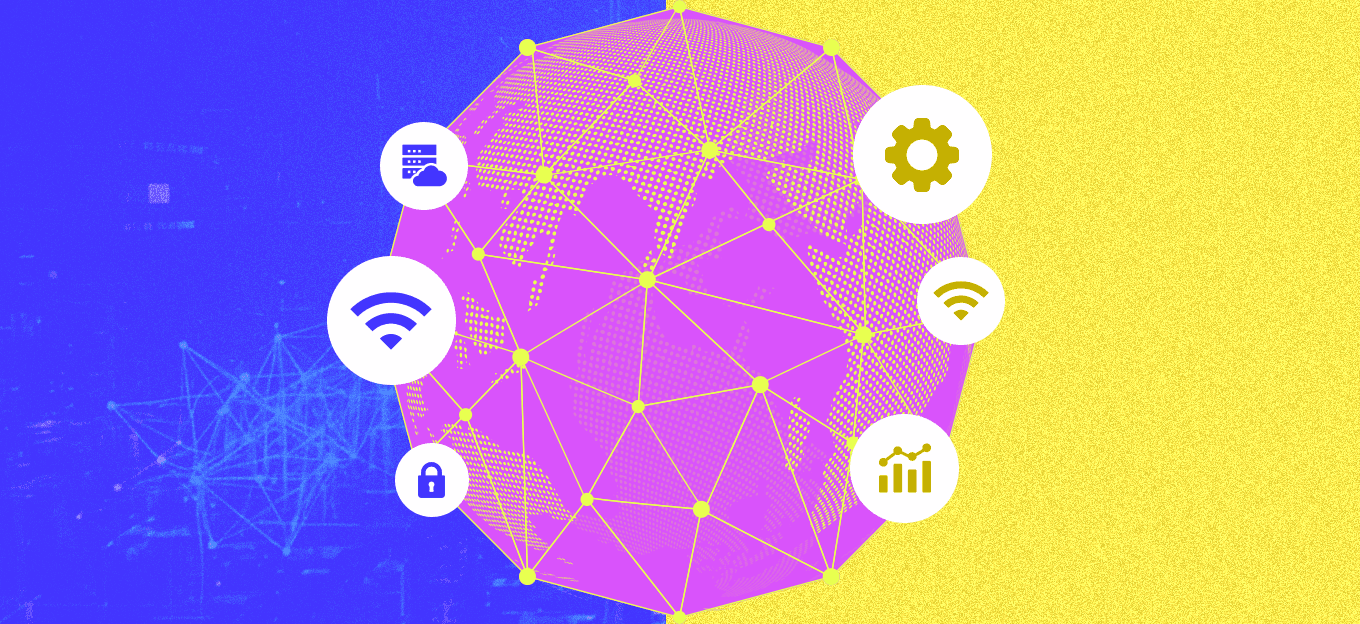Four Investments Driving Digital Transformation in Manufacturing
Four Investments Driving Digital Transformation in Manufacturing
- Last Updated: December 2, 2024
Jabil
- Last Updated: December 2, 2024



The era of digital transformation is upon us – from exciting new technologies in digital manufacturing to powerful new opportunities to create meaningful connections with customers through the Internet of Things (IoT), digital transformation is changing all aspects of the manufacturing business. And, it has the potential to disrupt every part of the enterprise.
But let's take a moment to pause. How do you describe the digital transformation in a manufacturing organization?
At its core, digital transformation refers to the use of technology to improve business results. Digital transformation can include any function within a manufacturing organization, including back office and supply chain applications, factory automation, social media for marketing outreach, sensors embedded in the goods produced, data analytics, and so much more.
With unprecedented benefits in efficiency, productivity and accuracy, digital business transformation is an exciting (and excellent) match for manufacturing. In fact, in a study sponsored by Jabil, 97 percent of manufacturing companies say the digital transformation will impact the future of manufacturing – and more importantly 93 percent expect the rate of transformation to accelerate. Therefore, the time to act is now.
Although today's business leaders want to reap the rewards of a digital transformation, significant investments are needed to achieve their goals. So, one big question remains: What key areas of technology investment will drive my company's digital transformation in the next few years?
1. Business Intelligence and Big Data
These terms may seem like buzzwords at first glance, but they are the true drivers of the digital transformation. The only proprietary information you have in your arsenal that's unique to your organization is data. But data is only valuable if it's put to use, which means it's important to:- Convert your raw data into actionable information that will allow you to move quickly
- Use it to deliver better results, better solutions and better experiences.
2. Transforming Manufacturing Operations
Here's the conundrum: Manufacturers need to become more agile in how they respond to changing customer demands in a complex, global supply chain. To do just that, they must embrace new technologies that will vastly improve their operations.With thousands of sensors monitoring every aspect of every process in real-time and communicating with self-optimized deep learning robots, product volume and customization can soar to altogether new heights.
Changes in the landscape are causing manufacturers to seek more visibility into their supply chains so they can cope with demands for tighter production cycles, and deliver high quality products that are growing smaller and more technically challenging while doing it all at a competitive cost.
3. Integrating New and Existing Systems
Information Technology is the backbone that allows the connectivity that you need to connect customers, suppliers, devices and employees and allow them to communicate, collaborate and work effectively. It’s the network and central nervous system of what's going on. The IoT has opened the flood gates with information and data that can be used to help companies in their decision making.The reality is – no digital transformation can occur without this foundation. You may have been able to get by with disparate systems all this time, but you can't rely on yesterday's integration approaches to go through a digital transformation.
To reinvent your business for today's world, your business platform is key.
4. Internet of Things and Product Connectivity
The IoT is drastically changing the way products and services are developed, sold and consumed. Connected solutions are capturing the attention of a C-Suite wanting to differentiate offerings and value-add in new ways.IoT enables companies to capture and analyze new tapes of data, fast. With the market in growth mode, it's the right time for companies to understand how more data can provide more value.
The potential for new revenue streams are available thanks to IoT – through high-volume data storage, real-time analytics and cloud computing. IoT analytics are redefining how companies develop and manufacture products and interact with their customers. But once again, this is all possible only if you're able to collect useful data and make sense out of it.
The truth is, IoT will touch multiple areas of your business. Here are just a few considerations to help you consider the impact:
- How you gather data and analyze customer-generated information
- How you revamp business processes
- How products are developed
- How you interact with customers
- How products are purchased
- How data will direct new product development
- How products are manufactured
- How products are serviced
It is concerning, however, that only 23 percent of manufacturing companies have a corporate-wide strategy for their digital transformation, per the Jabil survey. It's an important reminder that digital transformation takes a village. A single individual or department alone can't accomplish it.
Written by Erich Hoch, Executive Vice President and CEO, Jabil Digital Solutions.
The Most Comprehensive IoT Newsletter for Enterprises
Showcasing the highest-quality content, resources, news, and insights from the world of the Internet of Things. Subscribe to remain informed and up-to-date.
New Podcast Episode

Moving Past the Pilot Phase in IoT and AI
Related Articles
Are We Running Out of Infrastructure Capacity? What IoT Leaders Need to Know
December 18, 2025

Clarity Wins: What the Blue Jays’ World Series Run Teaches Tech Leaders About Alignment and Execution
October 24, 2025

Integrating IoT Data with Enterprise Systems: Breaking Silos for Better ROI
October 3, 2025



